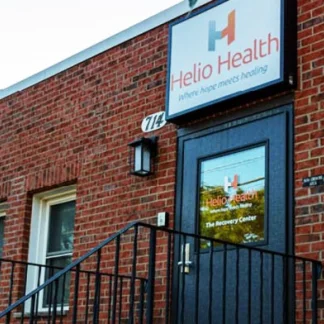Syracuse Behavioral Healthcare - Supportive Living
Syracuse Behavioral Healthcare – Supportive Living is a private rehab located in...
Syracuse Behavioral Healthcare - Recovery Services offers aftercare services, recovery meetings and intervention services for individuals in need of substance abuse support. Syracuse Behavioral Healthcare - Recovery Services is located at Syracuse, New York.
Since 1920, Syracuse Behavioral Healthcare programs have helped thousands of Central New York families struggling with alcohol and substance abuse issues. They make a big effort to became the most comprehensive treatment provider of substance use disorders and rehabilitation services.
They provide Aftercare services for helping individuals after completing treatment. Aftercare services is open to everyone regardless of affiliation with Syracuse Behavioral Healthcare.
They can also provide Intervention Services which include three, one hour family sessions to prepare and plan the intervention. Additionally, they offer a variety of groups including meeting of Alcoholic Anonymous, Meeting of Dual Recovery Anonymous and peer-led art group.
Contact us for more information: (315) 701-1518

Connect with Syracuse Behavioral Healthcare - Recovery Services by calling their admissions team directly.
(315) 701-1518 Website Get DirectionsResearch clearly demonstrates that recovery is far more successful and sustainable when loved ones like family members participate in rehab and substance abuse treatment. Genetic factors may be at play when it comes to drug and alcohol addiction, as well as mental health issues. Family dynamics often play a critical role in addiction triggers, and if properly educated, family members can be a strong source of support when it comes to rehabilitation.
Group therapy is any therapeutic work that happens in a group (not one-on-one). There are a number of different group therapy modalities, including support groups, experiential therapy, psycho-education, and more. Group therapy involves treatment as well as processing interaction between group members.
In individual therapy, a patient meets one-on-one with a trained psychologist or counselor. Therapy is a pivotal part of effective substance abuse treatment, as it often covers root causes of addiction, including challenges faced by the patient in their social, family, and work/school life.
Group therapy is any therapeutic work that happens in a group (not one-on-one). There are a number of different group therapy modalities, including support groups, experiential therapy, psycho-education, and more. Group therapy involves treatment as well as processing interaction between group members.
In individual therapy, a patient meets one-on-one with a trained psychologist or counselor. Therapy is a pivotal part of effective substance abuse treatment, as it often covers root causes of addiction, including challenges faced by the patient in their social, family, and work/school life.
In individual therapy, a patient meets one-on-one with a trained psychologist or counselor. Therapy is a pivotal part of effective substance abuse treatment, as it often covers root causes of addiction, including challenges faced by the patient in their social, family, and work/school life.
Syracuse Behavioral Healthcare – Supportive Living is a private rehab located in...
Hutchings Psychiatric Center – Madison is a public rehab located in Syracuse, Ne...
University Hospital of SUNY – Inpatient Psychiatric is a public rehab located in...
Hutchings Psychiatric Center – Irving is a public rehab located in Syracuse, New...